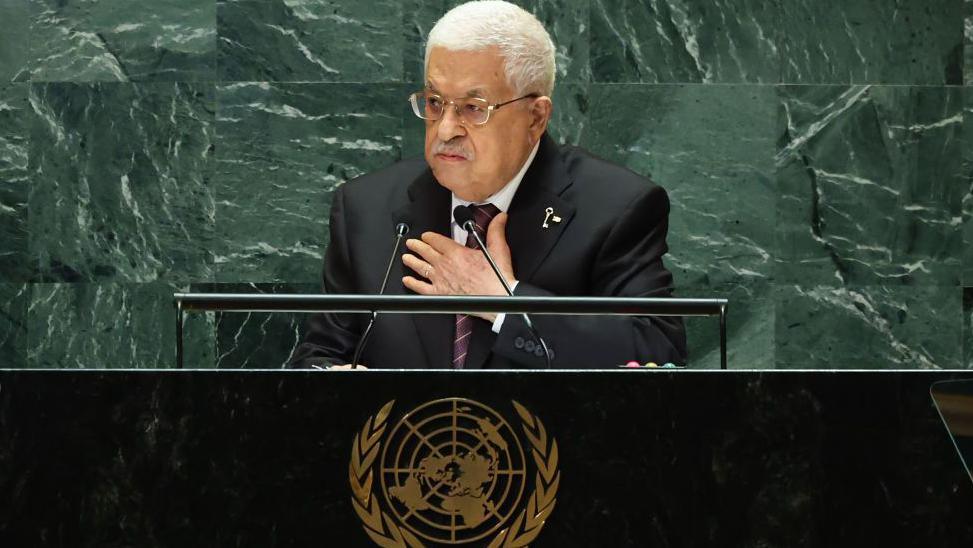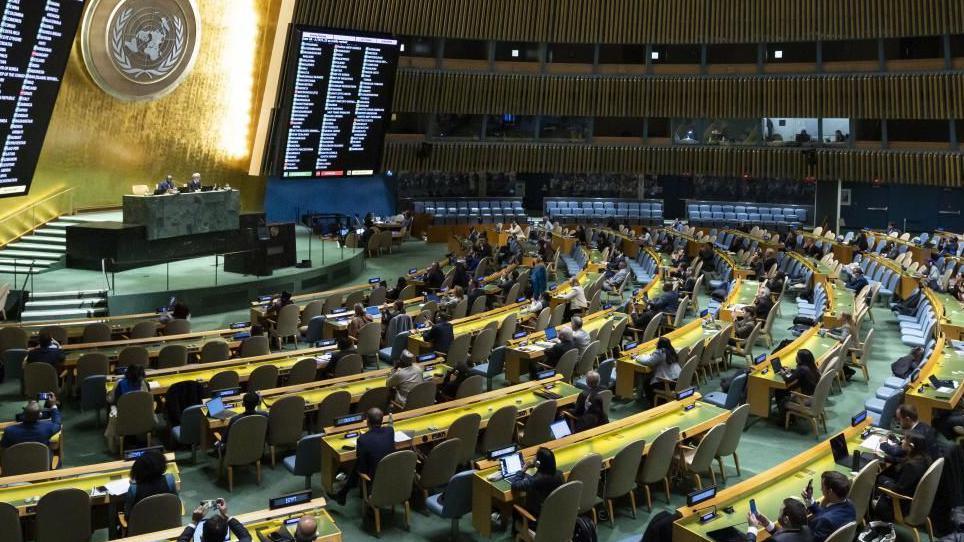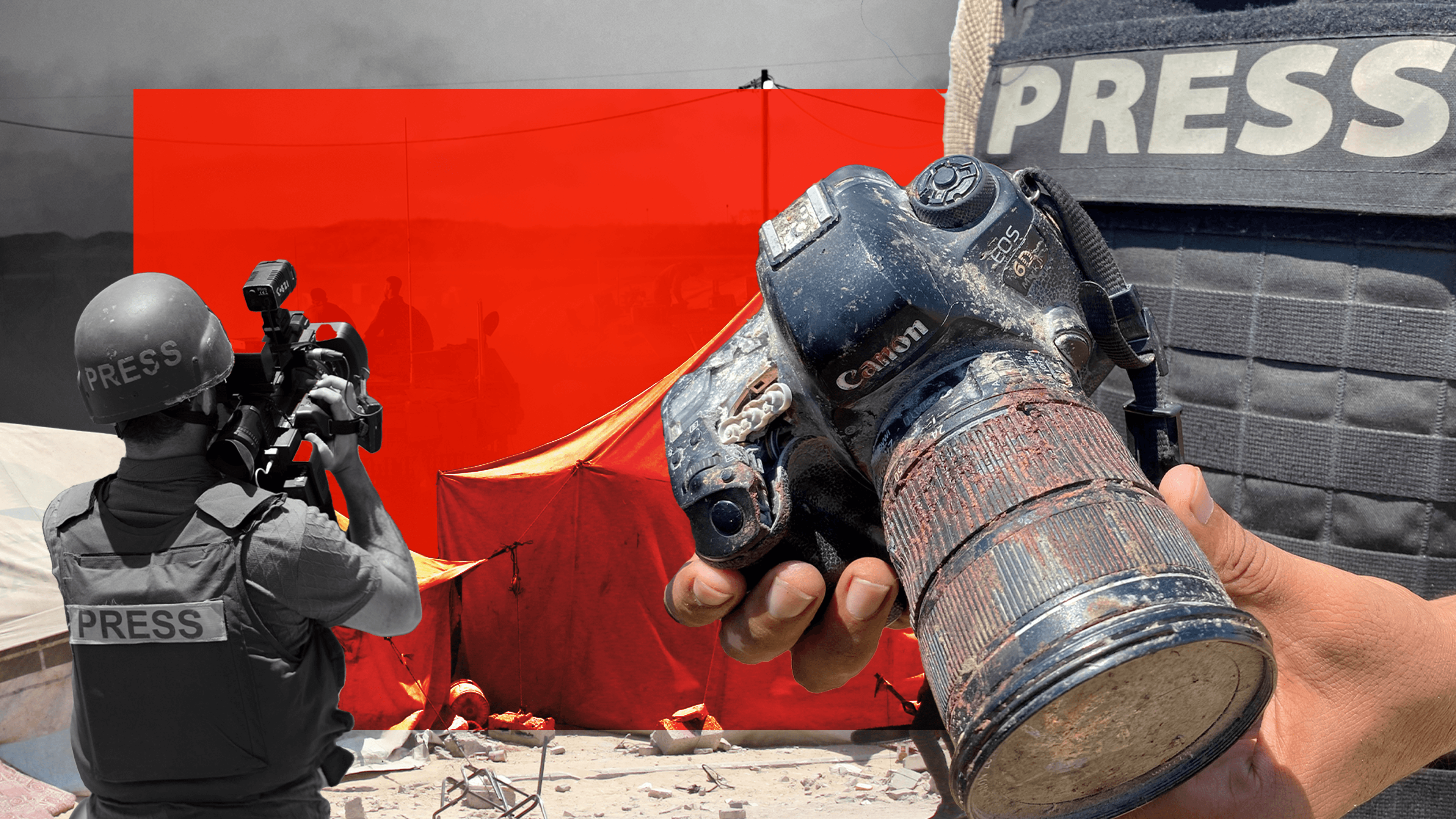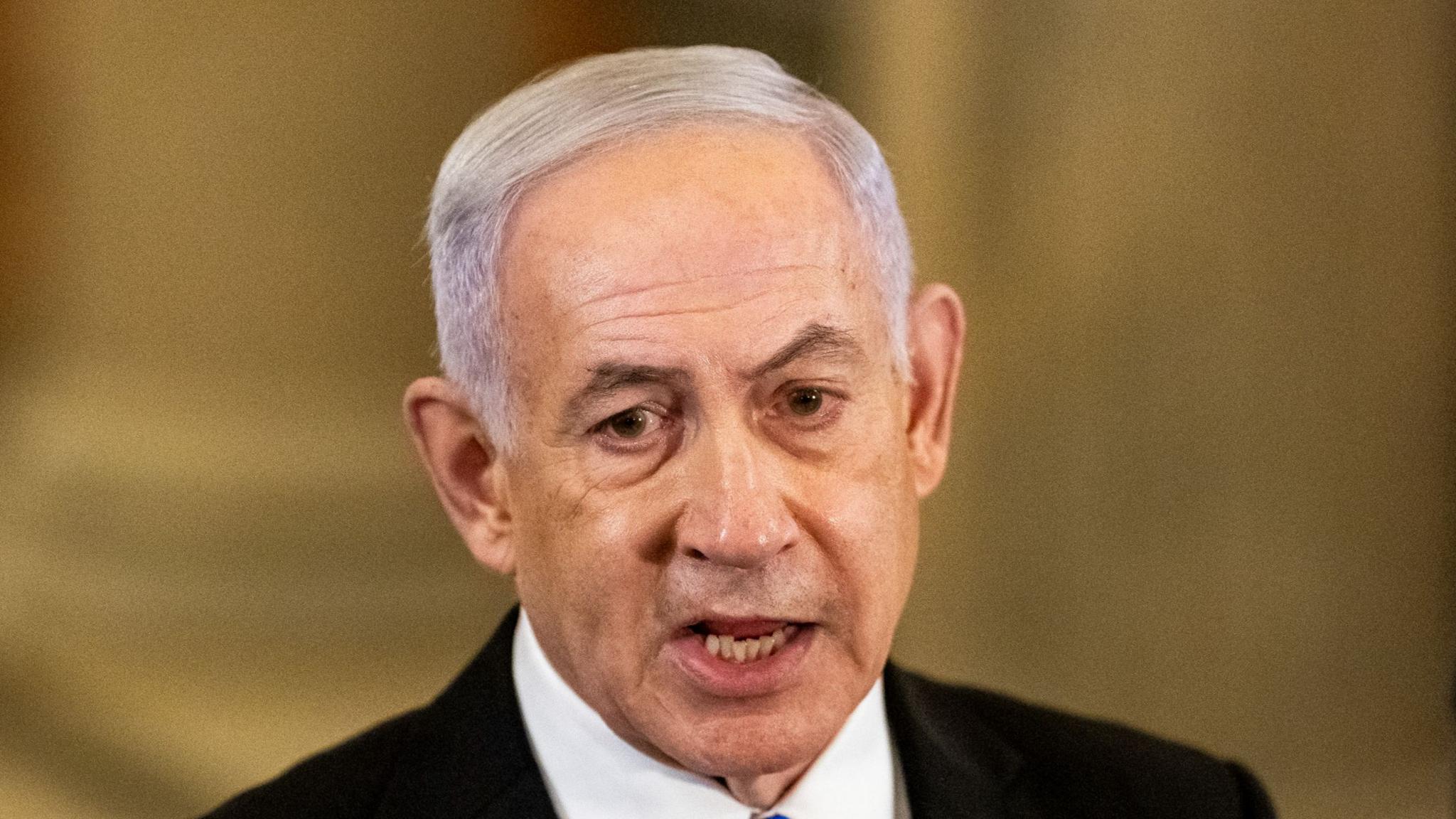US blocks Palestinian leader from attending UN meeting in New York

Palestinian leader Mahmoud Abbas had been planning to travel to New York for the UN assembly
- Published
Palestinian President Mahmoud Abbas has been blocked from attending the UN General Assembly session in New York next month, after he and 80 other Palestinian officials had their visas revoked, the US State Department has said.
US Secretary of State Marco Rubio blamed them for undermining peace efforts and for seeking "the unilateral recognition of a conjectural Palestinian state".
The decision, welcomed by Israel, is unusual as the US is expected to facilitate travel for officials of all countries wishing to visit the UN headquarters.
The ban comes as France leads international efforts to recognise a state of Palestine at the session - a move Donald Trump's administration has opposed.
The Palestinian ambassador to the UN, Riyad Mansour, had earlier said that, as head of its delegation, Abbas would be attending the meeting of heads of state and government.
But a State Department official later said Abbas and about 80 other Palestinians would be affected by the decision to deny and revoke visas from members of the Palestine Liberation Organization (PLO) and the Palestinian Authority (PA).
Rubio said Palestinian representatives at the UN mission in New York could attend the meetings in accordance with the UN Headquarters Agreement, external - the document that regulates issues regarding the operations of the UN in the US.
It is unclear, however, if the US move to deny or revoke visas complies with that document, which outlines that foreign officials' attendance in New York should not be impeded by the US, "irrespective of the relations" between their respective governments and the US.
Abbas' office said it was astonished by the visa decision, which "stands in clear contradiction to international law and the UN Headquarters Agreement, particularly since the State of Palestine is an observer member of the United Nations". It urged the US to reverse the move.
Israel's Foreign Minister Gideon Saar welcomed the move.
Hamas has been running the Gaza Strip for years, with its rival Fatah in charge in the West Bank. But even in the West Bank, the PA, led by Abbas, has struggled to govern, faced with rival groups and Jewish settlement expansion.
Abbas is also in charge of the PLO - the umbrella organisation which represents Palestinians at international fora.
In 1974, the UN voted to recognise the PLO as the "sole legitimate representative of the Palestinian people" and it was given observer status at the UN General Assembly, but not as a state.
In 2012, the General Assembly voted overwhelmingly to upgrade this, recognising Palestine as a non-member permanent observer state.
Israeli Prime Minister Benjamin Netanyahu has constantly rejected the idea of a two-state solution - the long-time international formula to resolve the decades-old Israel-Palestinian conflict. It envisages an independent Palestinian state being created alongside Israel in the West Bank and Gaza Strip, with East Jerusalem as its capital.
Netanyahu says recognition of a Palestinian state would amount to rewarding "Hamas's monstrous terrorism".
The Israeli military launched a campaign in Gaza in response to the Hamas-led attack on southern Israel on 7 October 2023, in which about 1,200 people were killed and 251 others were taken hostage.
More than 63,000 people have been killed in Gaza since then, according to the Hamas-run health ministry.

The US is expected to facilitate attendance at meetings of the UN in New York
In his announcement on Friday, Rubio said, external: "Before the PLO and PA can be considered partners for peace, they must consistently repudiate terrorism - including the October 7 massacre - and end incitement to terrorism in education, as required by U.S. law and as promised by the PLO."
He said they must also end efforts to bypass negotiations by pursuing legal cases against Israel at international courts.
UN spokesman Stephane Dujarric said the international body would discuss the matter with the US State Department and that it hoped the issue would be resolved.
"It is important that all member states, permanent observers, be able to be represented, especially I think in this case with the, as we know, the upcoming two-state solution meeting that France and Saudi Arabia will host at the beginning of the GA," Mr Dujarric said.
Apart from France, the UK, Canada and Australia have also announced plans to recognise a Palestinian state at the GA meeting next month.
The state of Palestine is currently recognised by 147 of the UN's 193 member nations.
But with no recognised borders, Israeli settlers controlling large parts of the West Bank - illegal under international law - and calls to do the same in Gaza, any recognition of a Palestinian state would not change much on the ground.
Related topics
- Published29 August


